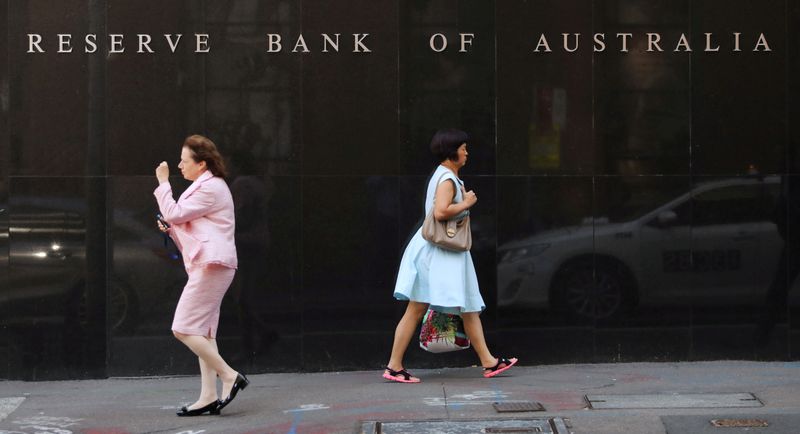SYDNEY (Reuters) – Australian banks are well placed to weather the coronavirus-driven economic downturn, the country’s central bank said, but it warned of vulnerabilities in household debt and risks of a slump in the property market.
In its biannual Financial Stability Review, the Reserve Bank of Australia (RBA) said the country’s lenders have entered the downturn with high profitability and “very good” asset performance.
The “strong starting position” of the banks has bolstered the financial system’s ability to absorb, rather than amplify, the effects of the pandemic, the RBA said.
“The Australian financial system is strong and well placed to support households and businesses through this difficult period and in the recovery that will follow,” RBA Assistant Governor Michelle Bullock said.
Australia’s major banks have solid finances, with their core Tier-I capital rations well above the level the country’s prudential regulator considers “unquestionably strong”, the review said. They are also highly profitable with very low loan losses.
The RBA said recent monetary and fiscal stimulus measures will help the country’s banks, businesses and households weather the economic storm.
The central bank last month cut interest rates to a record low 0.25% and launched an unlimited bond buying programme. The government has pledged A$320 billion in various support measures, including a wage subsidy scheme.
But despite these measures, the RBA said “increases in business failures and loan arrears are likely over the coming months.”
The central bank pointed to some “pockets of vulnerabilities” in the household sector with only about one in five households having enough liquid assets to tide over from one pay period to the next.
Amongst households with mortgage debt, just under one-third of mortgages have less than one month of prepayments, and about half of these appear particularly vulnerable to a sharp decline in income, the RBA said.
There were also some risks in the property market.
As demand for new homes slide the incidence of negative equity would increase if housing prices begin to decline sharply.
Already auction volumes and clearance rates have slumped in the two largest markets of Sydney and Melbourne.
“There is considerable uncertainty around the trajectory of the economic shock and subsequent recovery,” the RBA warned.
“It is important that financial institutions remain strong so that they are able to support households and businesses during this difficult period and during the recovery once the health crisis has passed.”
(Reporting by Swati Pandey; Editing by Shri Navaratnam)






















